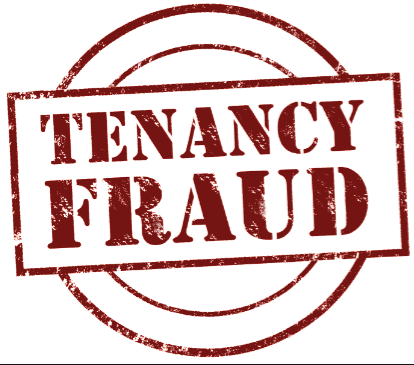How to Rent Out Your Property for Holidays/Weekends Away
If you own a property that’s empty for a lot of the year, one great way to get some use from the house and earn some money whilst doing this, would be to rent it out as a holiday home.
This can not only provide holiday-goers with great accommodation, adding to the overall experience of their trip, but also increases the security of your property, working as an excellent (and free!) deterrent from thieves and burglars.
With numerous benefits for renting your property out as a holiday home, there is however a rather important to-do list when setting this up. We at Octagon Capital understand how confusing and tedious it can be trying to hunt down everything on this list, and have therefore created this informative guide to help you get to grips with the key things to consider when turning your property into a holiday house, including:
- The makeover
- Remember the taxman
- Pricing it up
- Putting your property out there

The Makeover
As with many wanting to turn their property into a holiday home, odds are it isn’t used a lot, and therefore can often do with a new lick of paint. Refurbishing your property is a great investment for any new holiday home, increasing the appeal of the property, the number of guests who use it and subsequently the amount of money earnt from this. Refurbishing doesn’t have to break the bank either, its best to look around online and get a few quotes to find great deals for home renovations at the best prices.
It’s also important with the revamping of your holiday house to find its target market and to cater its new look around this. Assessing the location of your house, (is it near a city or in the countryside, is it near clubs/bars or historical landmarks etc.) in addition to its size are important steps to help figure out what type of clientele you’ll be mostly attracting, and therefore how to cater for this through the property’s appearance.
Remember The Taxman
When turning your property into a holiday home, one vital job to tick off the list as early as possible is to inform HMRC of these plans. This is required as you may have to pay tax on your earnings from the property, dependent on the amount of these earnings. To find out more information on this, please click here.
Pricing it Up
Another key thing to consider when turning your property into a holiday home and weekend getaway is to ensure that the price for renting it out is appropriate and in keeping with the rest of the competition in your area. As your customer base will typically be trying to find the best deals for their holiday, if your property is not at a competitive price, there is less chance it will be picked above those that are cheaper.
However, it is also important that you do not undersell your house, and if there are qualities making it stand out from the rest (e.g. a swimming pool, beautiful gardens etc.) these typically can add value to your property, and mean people will be willing to spend more money to stay there.
Putting it Out There
Once you’ve revamped your property, taken care of all the legalities that comes with making it a holiday house, (such as informing HMRC), and made sure your prices are at a decent, competitive rate, the next step is advertisement.
When putting your property out there, it can often be a challenge to get the consumer’s attention amidst a sea of other potentials. Therefore, getting your house added to such sites as Landed Houses can significantly increase its visibility and attraction, with owner of the company Edmund Cohen offering first-timers “consultancy over and above the ad-hoc support that comes with adding your house to Landed Houses; including web development and marketing advice.”
What factors do bridging loan lenders consider when approving a loan?
If you are considering making a bridging loan application, (typically because you are looking for funds to help bridge the gap between selling and the completion of an existing property that you have, and having the money in order to facilitate the brand new home) then it is worth making sure you are completely clued up as to the lending criteria bridging loan lenders will be assessing you on when deciding to approve or decline your application.
As one of the leading bridge finance brokers in the country, we have decided to put together a clear, concise guide to this criteria, in order for you to make the best application possible and therefore improve your chances of being accepted for this type of line.
Do you have an exit strategy?
When you make an application for a bridging loan, you will have to provide the loan provider with an exit strategy, which will be assessed. What we mean by exit strategy is when and how you will be able to make prompt repayments on the loan that may potentially be granted to you, this will also be dependent on the type of bridging loan that you have applied for too. For example, if you are looking to get access to an open bridging loan, then it will not be a requirement for you to provide an exact repayment date to the lender, however, do keep in mind that you will need to repay this loan back usually within a three year time period, and you must assure the lender that it is financially viable for you to do so. On the other hand, if you apply for a closed bridging loan, you will need to provide an exact repayment date for the lender, this will typically be when you have managed to sell your property and it has reached completion.
The type of property
Another factor that loan providers will be assessing when deciding to approve or decline you for a bridging loan is the kind of property you are intending to use the loan for. Whilst most property types (whether it be flats, houses, shops, office, parking spaces, hotels, guesthouses, bars) can all be taken into consideration for a bridging loan, you may find that it is the case that the interest rate and charges are better for those which are secured against residential property. The type of information that the lender will also require on a building you are intending to buy, or if you are using the loan for refinancing purposes include:
- The tenure of the property - whether it is freehold or leasehold
- The purchase price of the property
- The value of the property
- The cost of works (if you are intending to buy and then refurbish the property in or to sell on as an investment)
- The estimated value of the house once these refurbishment works have been carried out
- The proposed works that are to be carried out
Age of the applicant
As is the case with almost every type of loan on the market, the age of the applicant will be taken into account, and this will be a minimum applicant age of 18 years old and could be higher than this dependent on the lender. In some cases, there can also be a maximum age limit for one to be able to apply for a bridging loan.
Employment status
Another factor that will be considered by a bridging loan lender will be your employment status. Generally speaking, bridging loan applicants tend to be property developers, so a lender may be assessing their previous projects in order to determine how likely it is that they would be able to make prompt repayments at the end of the term for the bridging loan. If you aren't a property developer and are applying for a bridging loan for the very first time, then the loan provider will be wanting to make sure that you have sufficient funds and a stable enough income in order to pay the loan back when the time comes. For example, if you are constantly applying for payday loans to maintain your finances, you are far less likely to receive an approval for your bridging loan application.
Sufficient collateral
One of the main advantages of bridging loans is the fact that lenders do not necessarily always take into consideration your credit history (however, this is not necessarily the case with all bridging loan lenders, so you should definitely check with the lender in question prior to making an application if you feel that your credit score may be an issue).
This can be a huge plus when so many other types of loans available on the market tend to focus very heavily on whether or not your credit history is good or bad, and can often be the deciding factor as to if your loan application is approved or declined.
On the other hand, what most bridging loan lenders do require you to have is to have sufficient collateral in order to make sure that you will be able to make repayments at the end of the term. The collateral that you will have will be usually the property assets that you have, and these can be secured against different property types including commercial, residential and in certain cases land and building plots.
What does a conveyancer do?
Are you not entirely sure as to what a conveyancer is and what role they play exactly? We've broken it into steps to make it easier to understand and so you know exactly why you are paying them.
The role of the conveyancer
If you have just accepted an offer on a brand new property, the first step will usually be to ask for the help of a conveyancer in order to help you deal with the purchase. In the majority of cases, this will be a solicitor but you can also choose a property lawyer or a licensed conveyancer. Whichever you choose, you should always ensure they are regulated by either the Council for Licensed Conveyancers or the Solicitors Regulation Authority.
Opening the purchase file
The first thing a conveyancer does is open a purchase file and sends a letter to you requesting information from you such as your basic details, details of your estate agents, if you need a mortgage to purchase the property and if you do, where the deposit is coming from (perhaps through a bridging loan) and who is the lender. You might at this point also be provided on a fixed fee estimate based on the information given. However, it is worth noting that this price could be subject to change if the legal work becomes more complex further down the line.
Requesting a fee for searches
On average, you should be budgeting around £300 for Local Authority searches to be carried out by your solicitor. Local Authority searches help to detect any potential problems, like compulsory purchase orders or any outstanding enforcement notices for the property which can sometimes take a considerable amount of time to be processed.
Contacting the estate agent
Your conveyancer will be contacting the estate agents through which the property is marketed to get a memorandum of sale, otherwise known as a notification of sale. This information provides the solicitor's details for both parties involved. The next step for your solicitors is to contact the sellers in order to inform them that they will be acting on your behalf to purchase the property.
Receiving the seller's solicitors paperwork
Once the draft contract has been written by the seller's solicitor it is sent to your conveyancer alongside a copy of the 'Deeds' (also known as the tile). These will usually be electronically recorded and available online through the Land Registry, providing that the home has been sold once since 1990.
Your conveyancer will also be sent what is known as 'protocol documents' :
- A Fittings and Contents form: starting what will be removed or left in the building
- A Leasehold Information Form: if the property is a leasehold (a flat or an apartment are the most common types_ then it will set out things such as contact details for the management company and rent payable
- A Seller's Property Information Form: this is any information that the seller must tell the buyer. This may include things such as when the boiler was last serviced, or if there are any neighbour disputes.
Carrying out checks
One of the most important tasks your conveyancer will carry out on your behalf is going through all of the paperwork in order to see if there are any problems or questions that should be raised with the seller's solicitor. For example, this could be to do with flood risks or a discrepancy on the Deeds. Things like this tend to be lengthy and complicated, taking a matter of weeks.
Exchange and completion
Once you have provided a deposit of 10% of the purchase price to your conveyancer, they will now arrange with you a date in which you can arrange to move into your new home which is known as completion. Before this is finalised, it has to be agreed with the seller's solicitor too, as well as any other parties along the chain. Once a date has been mutually agreed upon, the conveyancer then helps to sort out a date in which contracts can then be exchanged.
The exchange is the part where the purchase of the property now becomes legally binding, it will be up to the seller's to release their contract ready for exchange, at this point the conveyancer can help to organise the process of exchanging contracts. The deposit at this point is then paid to the seller through your conveyancer's account.
The final completion statement
One of the final stages of the property buying process, your conveyancer will now send you the final completion statement. it is at this point also that you must pay the outstanding balance due for the property.
This includes things such as disbursements (the charges a conveyancer pays to third parties such as management company fees or Stamp Duty on your behalf) as well as the cost of the legal work that has been undertaken, and the balance of the mortgage amount. It is worth remembering the funds in question must have cleared in your solicitor's account prior to completion taking place. If you have paid money in advance for things such as search to be carried out, these will be deducted from the balance at this point.
Registering change of ownership
The final stage involves the conveyancer organising the change of ownership, which must be lodged with the Land Registry. After completion, the signed Deed is sent to your conveyancer who will send this to the and-registry">Land Registry for this to be registered alongside the mortgage deed, usually electronically. However, if its the first registration (e.g. its a new build) then the application will have to be posted.
What landlords should look for in their letting agent
As a landlord, you have a number of responsibilities towards your tenants, such as ensuring that their deposit is safely secured, and you make sure that regular maintenance is carried out in the building. However, before you get to the stage of renting out the property of others, you also have other responsibilities: to yourself.
There are a number of questions you should be asking prior to settling on a letting, or, if you have an existing relationship with one, continuously reviewing the relationship you have with them on an annual or biannual basis, so that you can determine whether you want to remain with the agent, change to another firm, or take on the role yourself. But what exactly do you ask? Below, we've listed some important questions to get you started:
- What type of properties do you let, and what kind of tenant?
- Can I see the contract?
- Who is responsible for maintenance issues?
- How do you report?
- Do you have samples of your documentation?
Whether you are new to the buy-to-let sector, or are a seasoned landlord but are still unsure what to ask, as a bridging loans lender, we understand the importance of asking the right questions and we are here to help.

What type of properties do you let, and what kind of tenant?
The majority of agents tend to do most things, however, some specialise in particular areas of the property market, such as rural homes, student lettings, larger family properties, or letting to LHA tenants. If you know exactly who your target market is, then asking this question is of vital importance, as you want to choose a lettings agents who is experienced in your tenant market. You want a letting agent who knows the market inside and out and understands what is important to people renting in the area.
Can I see the contract?
It may seem like a glaringly obvious question that a landlord could ask a lettings agent, but you would be surprised just how many do not end up asking this or looking at all at the letting agency's contract as well as the terms and conditions. However, this can be a big mistake to make, as not all lettings agencies share the exact same letting agent contracts. Before deciding to go with a lettings agent, you must see the contract, and make sure that it clearly states the fees, as well as the roles and responsibility of the lettings agent themselves. For example, do they check and prepare the inventory on your behalf, and do they carry out the handover? These are vital questions that need to be asked as well as verified in a contract.
Who is responsible for maintenance issues?
Depending on whether or not the letting agent has been employed by you on a full management contract or not, if it is the case, then agreeing delegated responsibility would be beneficial. That means that should issues arise or disrepairs, the letting agent has to contact you prior to deciding to employ a contractor in order to go ahead with the work. This means you can keep an eye on outgoings, as well as potentially use your own contractor instead if you are uncomfortable with the amount they are charging when you know that you would be able to find someone who is cheaper.
How do you report?
The way in which a lettings agent reports to a landlord is incredibly important. This is especially the case for those who have a fully managed arrangement on their rental property, as they will be looking for an agent who is able to give them regular updates. Therefore, be clear from the very start with them on the level of reporting that you want, as well as getting them to state what they are willing to provide. For example, ask questions such as will they send you reports on a regular basis of the rent and charges? Will you be sent on the details via email?
Do you have samples of your documentation?
It is worth looking at exactly what they end up putting on their tenancy agreements, check out reports and their inventories. You should be making sure that the letting agents is putting as much detail on the prospective tenant as they possibly can. This is key, as it means that in the event that the tenant ends up defaulting at a later date, there will be a wealth of information available in order to retrieve the payment. If you discover that they barely track any of their tenant's information, you should consider this as an alarm bell, and avoid using them. It could end up costing you a considerable amount of money in the future (for example, the tenant moves out and the inventory was miscalculated).
What is an income protection plan?
If you have a mortgage or decide to take out bridging finance, one thing you may be worried about as a borrower is running the risk of defaulting on repayments at some point in the future, meaning that you are concerned about the risk of ending up in a cycle of debt, or even worse, potentially losing your home completely. However, sometimes we can try to do whatever we can to keep fit and healthy, or keep our finances in check, and still end up in a financial emergency because of an unexpected illness. This is where an income protection plan can help you. But what exactly is this? We explain everything you need to know.
What is income protection insurance?
This used to be under another name, known as permanent health insurance (PHI) and it is a type of insurance protection policy that would be able to help you in the event that you find yourself unable to work for an extended period of time, due to injury or illness.
Otherwise known by its acronym IP, this is a protection plan that will pay out for a number of years (until retirement, death or until you return to work, depending on the individual circumstances). Nevertheless, it is also possible to get a short-term IP policy (also known as Stips) if you are looking for a similar policy with lower overall costs.
However, it is worth noting that these types of policies do not pay out if you end up becoming redundant, but you may be able to provide you with some form of back to work support if you are off due to illness.
Why should I get an income protection plan?
According to the consumer body and-ppi/income-protection/income-protection-explained-aum068h7cqr3">Which? whilst many of us do not currently have an income protection policy in place ( in fact, it is estimated that less than 9& of people in the country have this type of insurance, compared to 16% who have bought private medical insurance, and 41% who have taken out life insurance), it is nevertheless something that each and every working adult in the UK should consider. But why?
There aren't many employers in the UK who will cover their staff in the event that they need to take off a year or more due to becoming ill. With so many bills that will continue to be needed to be paid for, such as mortgages, this can be an extremely heavy burden on not only the person in question who is ill, but also supporting family members who may need to take on additional work in order to cover the costs of their partner or close family member being out of work. Clearly, this can put an enormous amount of stress on all concerned.
Furthermore, there is a low level amount of support available when it comes to state benefits, meaning that you will not necessarily be covered for the full amount you need in order to sustain your previous lifestyle, as statutory sick pay rates currently in the UK are up to £92.05 a week for up to 28 weeks.
How much does income protection pay out?
If you decide to get an income protection plan policy and need to use it, then you can expect to receive anywhere from 50% to 70% of your normal earnings. These payments are made to you on a tax-free basis.
It is worth remembering that these types of policies will only pay out in the event that the pre-agreed period has passed at the point at which you make a claim. This exact time frame will be dependent on the IP provider in question, but it can be from just one month, up to twelve altogether. To cut down on costs of taking out this type of insurance policy, take note of the fact that if you choose a deferral period with a longer time frame, the lower your overall premiums will be.
How much does IP cost?
There will be different factors at stake when it comes to the exact amount that you will end up paying (for example as similar with other kinds of health insurance policies, IP providers will be looking at things such whether your smoke, if you are in good health or not, as well as the level of cover that is required). However, it is worth noting that the type of job you have also plays a role, with a number of IP insurers dividing people into four categories as listed below:
- Class 1: Professional: managers, computer programmers, secretary
- Class 2: Those considered to have the high business mileage or skilled manual work
- Class 3: skilled manual works or semi-skilled workers: plumber, teacher
- Class 4: those that fall into the heavy manual worker or unskilled worker category
Everything you need to know about interest-only mortgages
It is estimated that there are over 1.67m interest-only mortgages in the UK, but how exactly do they work, and what is the difference between interest-only and repayment mortgages? As a bridging loan broker, we understand the importance of knowing the difference between the two so that you can make an informed decision as to what is best for you, and so we've put together a guide explaining in full everything you need to know about interest-only mortgages.
What is an interest-only mortgage?
An interest-only mortgage as the name suggests is where you only pay interest to the mortgage lender on a monthly basis. That means that the capital you have accrued is not paid, just the interest. This will mean that whilst your monthly payments will be less than if you took out a repayment mortgage, you will still end up owing the original amount you borrowed. As a result, that will mean that it is your responsibility as a borrower to find another way in which you can repay the capital at the end of your mortgage term. This is referred to by lenders as organising a separate 'repayment vehicle', and they will be looking for evidence from you of a repayment plan that demonstrates how you will pay the capital back. For many people who have taken out an interest-only mortgage, this will manifest itself in the form of selling other properties or paying a monthly amount separately into a stocks and shares ISA.
The history of interest-only mortgages
Prior to the 2008 financial crisis, interest-only mortgages were much more readily available. This is because, at this point, borrowers were able to make an application on an interest-only basis and be accepted for this type of mortgage without ever having shown the lenders how the debt would end up being repaid. However, after the credit crunch occurred, with financial markets collapsing and house prices plummeting across the UK, lenders realised that hundreds of thousands of people in the country would, in fact, struggle to be able to make repayments on their home loan.
Consequently, the proliferation of interest-only mortgages has diminished considerably in the last decade, and it is now quite difficult to be able to borrow money on an interest-only basis for mortgages. These days, not all lenders even provide the option of interest-only mortgages, with those that do still offer this kind of mortgage only doing so under strict eligibility criteria. Examples of this include:
- A very high minimum income
- A large deposit: depending on the lender the exact amount can vary, but it can be anything from at least 25%, with some mortgage providers requiring you to have a deposit equivalent of up to 50% of the property's value
- You will also need to show a robust repayment plan, and this doesn't simply mean putting some money into a basic savings plan
- It is worth remembering that is is very likely that your lender will carry out periodic checks on your chosen repayment plan, in order to sure that everything is on track and that you will still be able to pay back the required amount at the end of the term.
Interest-only mortgages vs repayment mortgages
Before deciding on which option is better for you, it is worth comparing the main differences between interest-only mortgages and repayment mortgages before making a final decision.
Interest-only mortgages
- Each month you only pay back the interest charged by your lender
- You will still owe the original amount at the end of the mortgage term
- Monthly interest based on full amount original loaned to you. That means that it is possible you end up paying higher interest overall
- It can be risky, as your 'repayment vehicle' may not pay dividends, as there is no guarantee that your investment will end up being enough to pay the mortgage in full when it comes to the end of the term
- Interest-only mortgages do however give you the freedom to invest money that would have been spent paying off the capital on a mortgage elsewhere until the term ends. This means you could end up making a substantial profit if your investments do well.
Repayment mortgages
- Each month you pay the interest charged by your lender, as well as part of the mortgage capital
- Once you reach the end of your mortgage term, you will not need to pay any more as it has already been paid off
- The monthly interest is calculated by looking at the amount you owe on your mortgage at that moment in time. That means that over the course of time, the interest will end up decreasing each month, unlike with interest-only mortgages
- The better equity that you have, the greater the likelihood of receiving a far better mortgage rate.
What to do if you have an interest-only mortgage
It is vital that you carefully consider exactly how you will repay back the capital on an interest-only mortgage before the end of the term. There are a number of different ways you can do this:
- You can decide to remortgage to a better remortgage rate
- You have the option of deciding to switch your mortgage to a repayment mortgage. This will mean that whilst your overall mortgage monthly repayments will increase, you will have the home loan completely repaid by the end of the term
- You could decide to make lump sum overpayments
- You can set up regular overpayments on your mortgage. However, it is worth noting that not all lenders will allow you to do so, so you should always verify with your lender beforehand
- Paying into an investment plan is another way in which you can pay off the capital on your mortgage. Consult a financial advisor for support and guidance as to the best ways to invest your money.
How to tackle tenancy fraud
Tenancy fraud is a very real and serious problem in the UK. Across the country, it is estimated that thousands of homes (mainly housing association and council homes) are being illegally occupied, costing taxpayers billions of pounds each and every year. But what exactly constitutes tenancy fraud? Octagon Capital takes a look at everything you need to know about the issue, as well as signs to look out for.
What is tenancy fraud?
Tenancy fraud refers to a property that is being occupied by a person or a group of people who do not have a legal right to live there. This may be through accessing a tenancy by giving false information and therefore gaining tenancy fraudulently. As previously stated, not only does this costs taxpayer in the UK a considerable amount of money, it also means that in certain situations, people who are in fact in desperate need of accommodation are unable to access housing, due to tenants illegally occupying buildings which then means that there is a shortage of housing that is available on the market.
What types of tenancy fraud are there?
There are a number of different categories of tenancy fraud that one can come across. The ones listed below are those that tend to be the most commonly cited:
- Unlawful subletting: this is when a tenant decides to rent out a part of their home, or the entirety of the property, without having the permission from a landlord to do so, making money from renting out the property whilst they are not living in it. It is important to note that if you are the sub-tenant, knowingly renting out an illegal sublet from someone, you may also be seen as a participant in tenancy fraud, and therefore if caught, you may have to pay a fine (remember, you will also have to deal with the fact that this will most likely appear on your criminal record too, hindering your career and credit applications in the future) due to committing a criminal offence
- Key selling: this refers to the situation whereby a resident is paid to then pass on their keys, receiving a one-off payment for having done so. It is important to note that both parties could face prosecution for having done this, as it will be seen that both parties have worked together in order to commit fraud
- Abandonment: another common scenario regarding tenancy fraud is when a resident stops living in a property and leaves but does not inform the landlord or housing association in order to stop receiving benefits they may have been entitled to as a result of living in the property.
- Getting housing through deception: a person may obtain housing due to having giving false information in their housing application
- Unlawful assignment: a tenant may stop using the property as their main home, but allow another person to live there who has not been granted permission by their landlord, housing association or the local council
- False right to buy (or right to acquire): this is when a resent makes a right to acquire or right to buy application whilst providing false information.
- Keeping a social rented home despite the fact they own another property
Why is it important to tackle tenancy fraud?
For housing management
One important reason that tenancy fraud should be tackled is that if a property has been used for fraudulent means (such as sublet to unauthorised residents, or left completely empty without informing management) then it means the housing provider in question has a lack of control when it comes to housing management. For example, that means that if the landlord is unaware of who is, in fact, living in their rented building, they may not be able to respond as effectively to problems such as repairs or issues regarding anti-social behaviour. This could have not only financial implications for the landlord (in the event that the property is severely damaged by unauthorised tenants) but also for those in the general neighbourhood too if there are problems with anti-social behaviour.
It can be re-let
Particularly when it comes to social housing in the UK, there is a shortage of public housing, and therefore tenancy fraud poses a real problem as it wastes valuable resources. If tenancy fraud is tackled, then it means that this property can then be re-let to another person or family in need, meaning that the building is used by those who genuinely appreciate it.
How to prevent tenancy fraud
There are a number of measures and ways in which the chance of tenancy fraud (or tackling cases of it) can be reduced. These include:
- Thorough identity verification checks: when a person signs up to a new tenancy, transfer or succession, landlords or housing providers should put in place additional checks in the form of verification checks in order to ensure the person is who they say they are. This may include doing a credit reference check, or training staff to focus on being able to identify forged documents
- Tenancy audits: these tend to be a successful way of both deterring as well as detecting cases of tenancy fraud. Visits to residents in their home mean that the landlord can check who is based there as well as ensure that the property is being looked after correctly
- Taking photos: it is becoming far more common for landlords and housing providers to take photographs of the resident as part of the sign-up process. This means that it is possible to verify photos against tenant records, and means that if a tenancy audit is being taken place, photos can be checked during a visit quickly and efficiently.
How to Get a House Valuation for Free
Thought it wasn't possible to find out how much your property is worth without having to fork out money? Thanks to the web, there are a number of completely free online tools at your disposal that can be used to estimate the price of a house, whether you are buying, selling, or simply browsing. Octagon Capital has put together the very best tools out there as well as providing expert tips regarding property valuations.
See what previous buyers got for their cash
It can often be difficult to see online exactly what a buyer got for their money (with the majority of sold-house sites, it will simply state the price and whether it was an apartment or house) with many property websites also tending not to state if the sale price was the same as the asking price.

However, there are ways around this to help you see if the previous buyer ended up overpaying or manage to get a discount. For example, Zoopla has a sold prices section that enables you to search a location and then see archived records for a property, detailing the price listings over a number of tears.
Check house price indexes
One of the best ways to identify the value of a property for free is by checking house price indexes online, which allow you to track housing trends both locally and nationally. There are a number of ways you can check:
- The Land Registry's House Price Index provides data on sales of almost all residences across England and Wales. It also breaks down house prices by country and region, as well as the type of property
- If you are looking at houses in Scotland you can look at data from Registers of Scotland. This provides information on house prices according to the district, as well as monthly average prices and sales volumes. As with the Land Registry, there is usually a time lag of about a month or so
- There is also the option of looking at Nationwide's House Price Index, where it breaks down the national and regional house valuation data
Get an estimated valuation on your home
There are a number of free property valuation tools available online, one of these includes Mouseprice.com, all you need to do is give your postcode as well as the number of bedrooms in your property.
Keep an eye on house prices on the go
Check out one of the free property apps available that allow you to monitor house prices on the go. The Rightmove app uses GPS technology to identify houses or flats for sale near you, wherever your location may be at the time.
Check for air pollution and flood risks
There are free sites available to show you if a property that you are considering buying is potentially susceptible to flooding, which could end up saving you a considerable amount of money in the long run. It may not be something you will be immediately thinking of when deciding to buy a house, but you should remember that if a house has a high risk of flooding this will also then impact upon the property's value as well as insurance premium.

For properties in England and Wales, look at the Environment Agency, and to check the flood risk of houses in Scotland, contact the Scottish Environment Protection Agency. Both these agencies will have detailed reports about whether an area is considered low, moderate or at significant risk of flooding. They will also be able to check for air quality, as well as other potential pollution issues.
Look at crime rates
Crime rates in an area will not only impact the price of a property but also have an effect on your insurance premiums. This is why it is well worth taking the time to look at the police. uk crime mapping website, which allows you to look at all recorded crimes in England and Wales by street.
Check for subsidence risks
You could end up saving a lot of money by simply conducting a quick search on the website Homecheck. This site collates data from a number of different resources, including the British Geological Survey, and helps to analyse the risk of subsidence and other environmental problems in any area of the UK. All you need to do is type in a postcode, and it will do the hard work for you.
Get a ballpark valuation
Use free online tools from a number of sites in order to get a rough indication of what your home is valued at. One of the most popularly used sites is Zoopla, with this site all you need to do is pop in your postcode and then they will provide you with an estimate for sale prices for the location.

You can also get a bespoke valuation, by selecting a house on a street using market data and old sales prices. It is also possible to predict rental income, as well as then compare it to the location's average.
Sign up for house price alerts
Another way to keep an eye on housing trends is to sign up for free monthly email alerts. This enables you to keep a track of any fluctuations of property prices, without having to put much effort in to do so. Signing up with Mouseprice means that you can get alerts about if a seller has reduced their property prices in your chosen area, as well as all house price info.
Look at the council tax band
It is very easy to be able to check your council tax bands in England and Scotland, and you may be able to make a considerable amount of savings by challenging the council tax band, meaning you can then get a rebate potentially worth thousands.
What is Help to Save?
What is the Help to Save scheme? We take a look at what it is, what it is used for, as well as the advantages and disadvantages of it. Whilst using Help to Save is not a practical to purchase a property under short notice (like a bridging loan would), it is important nonetheless to know about these things - maybe because your potential buyers could use this scheme.
What is Help to Save?
The Help to Save scheme was announced back in 2016. The new Help to Save savings scheme is a government initiative that is intended to help those on lower incomes in the UK to gradually build up their savings and to create a so-called 'rainy day fund'. This could help prevent millions of families across the UK spiralling into debt, by having a savings account that works as a safety net.
The scheme, which has been subject to several delays prior to its implementation, has been introduced by the government as they want to encourage those on all income levels to save, due to the extremely important role savings can have in terms of raising aspirations. People can save money with the intention of buying a car or towards a deposit for a new home, or it can help them in the event of a financial emergency.
According to the and-who-its-for/the-help-to-save-scheme">GOV UK website, savers who use the scheme regularly could end up receiving up to £1,200 in tax-free bonuses over the course of four years, if they make deposits of up to £50 each month.
Who can apply for the Help to Save scheme?
The Help to Save scheme by HM Revenue and Customs is intended to help up to 3.5 million people across the UK to increase their savings. This includes residents in the UK who are:
- In receipt of Universal Credit, with minimum household holdings equivalent to around 16 hours a week at the National Living Wage. This equates to around £542.88 for the month
- In receipt of Working Tax Credit or Child Tax Credit payments
- You can also be a recipient if you live overseas and are a Crown servant or a member of the British armed forces
If you do meet these eligibility criteria, you do not need to do anything to apply for the scheme
When does the Help to Save Scheme start?
As previously mentioned, the Help to Save scheme has been the subject of numerous delays. However, there is now a start date. Whilst there are some trials currently being rolled out across the country, which started at the beginning of this year, the scheme will be available to all those eligible in the UK by the start of October 2018.
How does the Help to Save scheme work?
Once the scheme starts to be rolled out across the UK, HMRC will assess your eligibility. If your application is accepted you will be able to start saving with immediate effect. You can manage this account online through the GOV.UK website. This means that paying into the account, checking the balance as well as any other transactions you may carry out for your Help to Save account must all be carried out through this website.
What are the benefits of the Help to Save scheme?
For individuals or families on low incomes in the UK, the Help to Save scheme could provide a genuine lifeline, and encourage good saving habits by providing incentives, for example.
- Customers have the opportunity to save up to £50 each month into their Help to Save online account
- At the end of the two-year long Help to Save scheme, savers will receive a 50% government bonus on savings of up to £50 each month, based on the highest balance achieved in the account
- At this point, savers have the option of taking out the money that has been saved over the two year period
- However, if they do decide to keep the money in the Help to Save account for a further two years, they will receive an additional 50% bonus from the government in these savings
- This means that over the course of four years, customers who have saved £2,400 - the maximum amount one can save, they will receive government bonuses of £1,200
It is important to note that it is possible to withdraw money out of the Help to Save account at any point in time. You can also choose to spend the money accumulated in any way you wish. However, this is likely to affect the amount you receive as a bonus payment at the end of the two year period.
What is Property Block Management?
Block management is a crucial element to take account of when it comes to the upkeep and maintenance of residential property blocks. As a service that is needed by both the block owners and landlords as well as individual leaseholders within the development, having a properly managed block can be the difference between a high turnover of tenants and leaseholders and longer, established parties.
Effectively managing a block is specialised and requires skilled experts with the right knowledge to ensure all parties’ interests are taken care of and tenants are able to live in comfort and peace. There are many companies that offer block management services but it remains important to research and check reviews and opinions about each to make sure you choose the best block management provider for your needs and requirements.
Furthermore, this service is equally applicable to both small and larger blocks, with the needs and requirements simply being on different scales for each. Moreover, by having well managed and well looked after residential blocks, the likelihood for conflicts with residents, leaseholders and tenants is greatly reduced as effective block managers will be able to address and rectify any issues before they escalate.

What Does Block Management Entail?
Whilst there are a few similarities between block management and traditional property management, the challenges faced when looking after a block with potentially tens or even hundreds of residents as opposed to a property with a handful are very different. There are different legal implications, laws to be accounted for and services that need to be provided when the property in question is a block as opposed to a single housing unit or a house.
For example, it is very common in the case of residential blocks for the block and the freehold to be owned by one party [the freeholder] and individual flats owned by other parties [leaseholders]. The leaseholders will each pay service charges, also known as ‘ground rent’ to the freeholder, whilst tenants of the leaseholders will pay rent. It is however, the ultimate responsibility of the freeholder to ensure the block itself is properly managed and this is where a block management company come into the equation.
It is important therefore to also understand the differences between leaseholders and freeholders to know who is responsible and accountable for what.
The responsibilities of the nominated block management company will include:
- Money and service charge collections
- Health, safety and security
- Maintenance and repairs
- Insurance and legalities
Money and Service Charge Collections
Each leaseholder, who owns a specific flat or apartment in the block will be liable for service charge payments to the freeholder. This will be collected by the block management company who will then pass on these fees to the freeholder as part of the service they are paid to provide. Other payments and charges may need to be collected by the block manager too. For example, if any resident needs to pay for anything affecting the block, for example if they break a communal window, this will be collected and facilitated by the block manager.
Health, Safety and Security
Ensuring the block is safe from any hazards such as dangerous wiring, asbestos and other health hazards is part and parcel of what management of all blocks will include. Furthermore, the block management company should carry out regular site inspections to make sure nothing is amiss and nothing dangerous is present. For example, corridors that are full of rubbish or peoples’ possessions can pose a significant fire hazard by obstructing exits and safe passages. They will also be responsible for making sure the property is secure, with communal doors and main access points not vulnerable to intrusion and trespassers.
Maintenance and Repairs
It is inevitable that with numerous people all sharing the same corridors and communal areas that there will be a degree of wear and tear and that there will be things that from time to time will need fixing and replacing. Block managers will identify these issues and what needs doing and will allocate tradespeople, cleaners, gardeners and otherwise to take care of these things so that the residents and leaseholders need not worry.
Insurances and Legalities
In addition to the buildings insurance required, the management company will ensure that all relevant legislation and regulations are taken care of and abided by as they should be by tenants, leaseholders and landlords.









